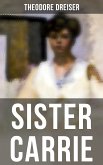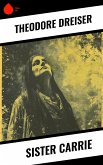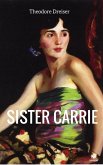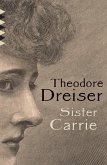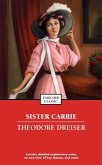In "Sister Carrie," Theodore Dreiser crafts a poignant exploration of ambition, desire, and the often harsh realities of American society in the late 19th century. Through the life of Carrie Meeber, a young woman who arrives in Chicago with dreams of success, Dreiser employs a naturalistic literary style that emphasizes the influence of environment and social forces on individual fate. The novel's unflinching portrayal of Carrie's struggles against poverty, moral constraints, and her ultimate descent into a life of seduction and compromise exemplifies Dreiser's commitment to depicting life as it is rather than as it ought to be, situating his work within the broader context of the American literary movement of realism and determinism. The author, Theodore Dreiser, was born in 1871 to a modest Midwestern family and faced considerable challenges in his early life, grappling with themes of class struggle and the pursuit of the American Dream. These experiences shaped his worldview and fueled his desire to expose the trials of individuals navigating the complex socio-economic landscape of America, as vividly illustrated through Carrie's transformative journey. Dreiser's prevailing belief in the deterministic forces surrounding human agency further underlies the narrative, reflecting his philosophical convictions. "Sister Carrie" is recommended for readers seeking an insightful analysis of societal constraints and the human condition. Dreiser's incisive character studies and eloquent prose encourage profound reflection on the ideals of ambition and fulfillment, challenging readers to consider the costs associated with one's pursuit of happiness. A seminal work in American literature, "Sister Carrie" remains a compelling read for those who aspire to understand the intricate relationship between personal desire and societal expectations.
Dieser Download kann aus rechtlichen Gründen nur mit Rechnungsadresse in A, B, BG, CY, CZ, D, DK, EW, FIN, F, GR, H, IRL, I, LT, L, LR, M, NL, PL, P, R, S, SLO, SK ausgeliefert werden.




